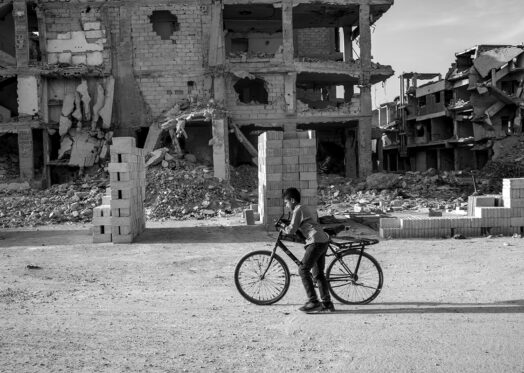Syria faces an uncertain future

Ahmad’s eyes fill with tears as he shows photos of his two murdered sons, Ibrahim, 17 years old, and Yusuf, 23, who were abducted, killed and thrown into a well near the village of Al-Shenia, west of Homs. Their guilt: belonging to the Alawite minority, of which president Bashar al-Assad was a member. Yusuf’s wife Susan holds her daughter Qamar, who had been born 19 days when her father was finished with a bullet in his head. More than 1,500 Alawites have been slaughtered since former jihadist Ahmed al-Sharaa took power in Damascus in December, sparking fear among the many Christian, Druze and Kurdish communities that make up the country’s historical ethnic and religious mosaic.
Going back to Syria, where I’ve been several times during the civil war, I was stunned by the challenges facing the transitional government: hold together a multi-ethnic and multi-religious country shattered by the long conflict, exhausted by economic sanctions, hostage to a constellation of armed groups and with some 20 foreign military bases permanently implanted on national soil.
Al-Sharaa’s Hayat tahrir al-Shams (HTS), the “Organization for the Liberation of the Levant”, only comprises some 20,000 fighters and that makes him reliant on the tens of thousands of fighters from other groups, including the very hardline jihadist factions he is being asked by the West to combat. But moving against them could plunge Syria back into war.
He must also contend with a host of foreign powers from the United States to Russia, Israel, Turkey and Iran, all turning Syria’s territory into a geopolitical chessboard. Turkey holds the north, backing opposition forces while suppressing Kurdish ambitions. US-backed Kurdish-led forces control the east with its vital oil fields, while Israel capitalized on Assad’s fall to bolster its military foothold. It now controls a 400-square-km demilitarized buffer zone, supports the Druze minority and is opposed to the new Syrian leadership.
Despite promises, the five-year constitutional declaration gives al-Sharaa absolute power as president, prime minister, head of the armed forces and chief of national security, as well as granting him the authority to appoint judges, ministers and a third of parliament, dashing hopes for democratic reforms. The constitution also enshrines Islamic law as “the main source” of legislation.
After 14 years of war, Syria’s economy is shattered. The country’s GDP has collapsed. Unemployment is high, and those who do have work earn only a fraction of their pre-war income. Meanwhile, inflation has skyrocketed. Today, almost all Syrians live below the poverty line defined by the World Bank. The German Red Cross reports that two-thirds of them live in extreme poverty.
I have travelled extensively from the capital to the Druze southern provinces, then up north to Hama, Homs, Alep, Idlib. I visited Alawite enclaves, Christian hamlets and monasteries, refugee camps and abandoned villages: everywhere the scale of destruction is staggering. Neighborhoods of major cities razed to the ground, churches and mosques reduced to rubble, barracks and airports repeatedly bombed.
At checkpoints, young men with Kalashnikovs look bewildered and almost surprised to be in charge. The power vacuum is evident. Uncertainty is widespread. The army has been dissolved, and in the ranks of the many militias can be seen the bearded faces of mujahiddin who have come down from the mountains or sprung up from the countryside of Idlib and Raqqa with no clear ideas about their role. Among them, Uighur and Turkmen foreign fighters with niqab-clad wives in tow.
Hanna Jallouf, the Catholic archbishop of Alep, is quite optimistic. “Al-Sharaa” he tells me “is a man of his word. He will get rid of the jihadists and respect minorities. But it will take time; you don’t transform a country overnight”.
How much time will be granted to Syria? In a rapidly changing Middle East, with an unpredictable president in Washington, an aggressive war criminal in Tel Aviv and an autocrat with neocolonial aspirations in Ankara, one thing is certain: the fate of Syria will once again be in the hands of foreign powers whose only goal is to expand their spheres of influence and geopolitical clout.





